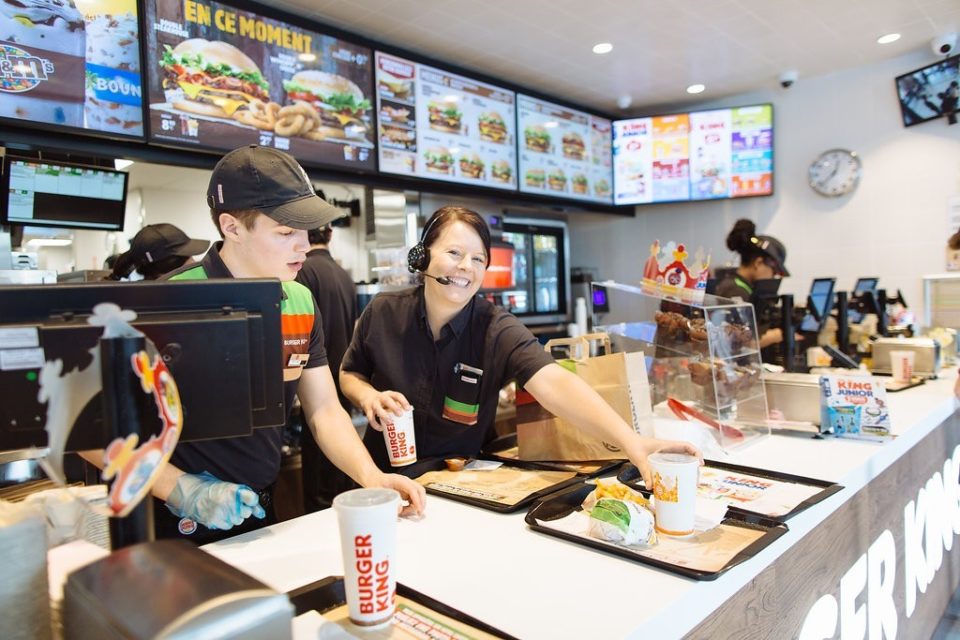Problem Detection is one of marketing’s most effective strategies. Profitably solving and satisfying customer problems is the aim of marketing. So, marketers tend to focus problem detection on customers. But, as brand-business’ know, having motivated, committed, proud and loyal employees is a most critical factor in brand-business success. Recent research from Deloitte, the global services group, re-confirms the fundamental principle that loyal employees generate loyal customers.
This is why the recent actions of Uber’s CEO, Dara Khosrowshahi, are so remarkable. Uber’s CEO went undercover to understand problems with the Uber experience from Uber drivers’ perspectives. Not only were problems recognized, Uber went about solving the problems in order to make driving an Uber a much better experience. As Mr. Khosrowshahi stated, his focus has always been on the rider experience. Now, he understands that to have a great rider experience, Uber needs to have a great driver experience.
What Mr. Khosrowshahi learned is that the drivers’ issues were valid and needed to be addressed. As one analyst said, “Having loyal drivers makes Uber more competitive and sets it up to expand into new categories and deliver better returns for investors.”
The Wall Street Journal catalogued Uber’s problems and the solutions in a detailed story. Mr. Khosrowshahi’s undercover problem detection study while driving has been the foundation for “one of the biggest makeovers of Uber’s brand-business since its inception in 2009.”
To demonstrate the power of problem detection and the solutions that come from this approach, Uber used to use incentives to motivate drivers. But, incentives put a financial strain on the brand-business’ results. And, money cannot buy true brand loyalty, just look at the car industry. Of course, as pointed out the article, pay is a motivating factor. Yet, Uber drivers wanted to be heard on a lot of other issues besides pay. While driving for Uber, Mr. Khosrowshahi discovered that believing incentives would fix everything was not the answer. It became clear to him that there were fundamental changes that needed to happen.
Problem-solution is a practical, flexible, effective approach for marketers when it comes to product and service renovation and innovation. Unfortunately, it is not used enough. And, it is certainly not used enough to improve employee brand-business interactions and experiences.
A problem-focused approach is the most productive way to identify new development and marketing opportunities. Asking drivers what they might want is not that helpful. Usually answers to what people want are generic such as “I want a good driving experience” or “I want to feel good about my Uber role.”
Unlike wants, problems are not speculative or imagined. Problems are based on actual experience; problems are real roadblocks or snags or impediments to seamless functioning.
For example, Mr. Khosrowshahi discovered problems with the sign-up process where drivers choose whether they wish to deliver food or people. Mr. Khosrowshahi is quoted as saying the process was “clunky.” Uber fixed this problem.
While driving for food delivery, Mr. Khosrowshahi discovered that food pick-up at restaurants was “confusing” and so this was also fixed. Uber created a delivery driver video to clarify the steps for food pick-up making it easier for drivers. Also, there were issues with misinformation on how many orders were to be picked up and delivered. Uber fixed this as well.
As for driving passengers, Mr. Khosrowshahi became as frustrated as many Uber drivers were. He learned that not all passengers were polite. Mr. Khosrowshahi was “punished” – as Uber drivers are – for certain actions such as rejecting some trips. The solution is the ability of drivers to see passenger pick-up destinations in advance without restrictions. Furthermore, Uber is working on making some destinations more attractive. This has changed the way in which Uber calculates pay for drivers.
There were glitches in the software that stymied address navigation for multiple passenger pick-ups. This was fixed, as well.
The list of problems in The Wall Street Journal article is long. And, to Uber’s credit, solutions to all of the issues were created. The solutions not only covered Uber-specific problems but also include driver safety issues relating to conditions such as maps that avoid accident-prone turns and in-car video cams.
Problem Detection is a superior way to market, whether externally or internally. As the Deloitte study reiterates, some of the priorities in developing a workforce built on trust are:
1) implementing technologies for workers to complete their tasks effectively and efficiently;
2) listening and solving based on the worker experience and their evolving needs; and
3) generating initiatives for different segments of the workforce.
Mr. Khosrowshahi and his team addressed these priorities using Problem Detection. It is clear from this Uber initiative that internal marketing can be boosted and furthered by focusing on solving workforce problems. Of course, an aligned workforce wants answers to questions about: What is my role? What do these changes mean to me? How do I grow? And, other important issues around education, inspiration and leadership.
But, as Uber is showing, fixing the most important and frequently occurring “experience” problems should be an integral part of any internal marketing program.
Uber now has shown its commitment to its driver workforce by listening, learning and changing. This is making Uber the preferred choice for many people who wish to drive for food delivery or passenger pick-ups and drop-offs. Being the preferred employer is an incredible competitive advantage. Internal Problem Detection can help make this happen.
Contributed to Branding Strategy Insider by: Larry Light, Author of The Paradox Planet: Creating Brand Experiences For The Age Of I
The Blake Project Can Help You Build Your Brand From The Inside Out: Please email us for more about our purpose, mission, vision and values and brand culture workshops.
Branding Strategy Insider is a service of The Blake Project: A strategic brand consultancy specializing in Brand Research, Brand Strategy, Brand Licensing and Brand Education




